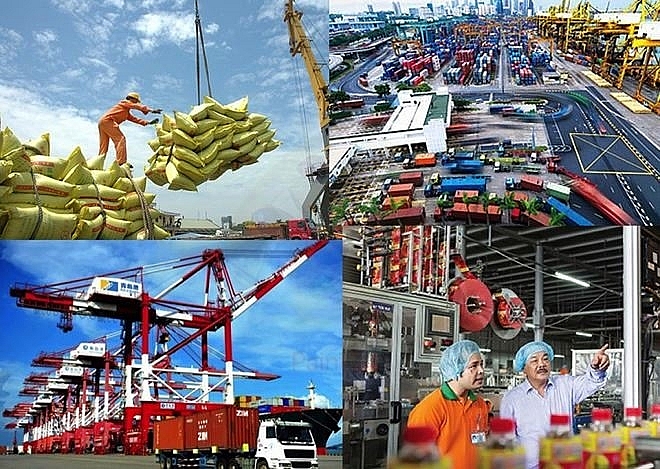Vietnamese businesses upbeat about trade
 |
| Vietnamese enterprises are among the world’s most optimistic about international trade prospects and most confident when it comes to succeeding in the current environment. |
Ninety-one percent of Vietnamese respondents, compared with 75 percent globally, believe the outlook for trade is favourable despite geopolitical factors which are curbing enthusiasm elsewhere.
They cited “a favourable economic environment, decreasing costs of shipping, logistics and storage, and an increasing demand for their products as the top three drivers of trade growth”.
In addition, 91 percent believe they will succeed in the current environment, compared to 81per cent of businesses globally.
Consumer confidence, commodity prices and global economic growth are the top factors for their positive outlook, according to the report.
On a global level, respondents are upbeat about their prospects, encouraged by customer demand and favourable economic conditions.
However, many Vietnamese firms are revising their strategies for fear that protectionist policies will have a negative impact on international trade.
Winfield Wong, head of Wholesale Banking of HSBC Vietnam, said: “Vietnamese businesses’ optimism reflects an economy that’s been one of Asia’s star performers, which has been growing fast.”
“They are optimistic as they consider themselves well-positioned thanks to a strong domestic economy, confidence in the global economy, as well as far-reaching trade deals and burgeoning trade relations with major markets.”
The majority of Vietnamese respondents are positive about partnerships established with key trading partners, with 69 percent believing ASEAN membership will help their business in the next three years.
Similarly, 65 percent of Vietnamese firms believe the forthcoming EU-Vietnam Free Trade Agreement will have a positive impact on their business.
The two sides agreed on a final text for the trade agreement in June.
Local firms are also looking beyond these agreements for growth. Over a quarter of businesses are eyeing opportunities in Japan, while 23 percent are looking to expand into China, and a fifth are considering the Republic of Korea for expansion.
In an effort to raise standards and boost competitiveness, 45 percent of Vietnamese respondents said that up-skilling their workforce was a key focus for investment while 43 per cent enterprises said they were focusing more on productivity and skills development.
Meanwhile, around eight out of 10 companies in the country are using data to optimise their performance, compared with 75 percent globally.
Despite the overall optimistic outlook on trade opportunities, four out of five Vietnamese firms (78 percent) said that foreign governments were becoming more protectionist, considerably higher than the global benchmark (63 percent).
The Navigator survey shows more than half of companies (51 percent) globally expect that FTAs, where they apply to their country and industry, will benefit them over the next three years.
FTAs are particularly popular in emerging markets, with 60 percent of firms saying they will have a positive impact, compared to 45 percent of firms in developed markets.
The Navigator: Now, Next and How for Business report, which polled over 8,500 businesses, was based on a global survey gauging business sentiment and expectations on trade activity and business growth from 8,650 decision-makers in 34 markets.
What the stars mean:
★ Poor ★ ★ Promising ★★★ Good ★★★★ Very good ★★★★★ Exceptional
Related Contents
Latest News
More News
- Foreign fruits flood Vietnamese market (December 09, 2025 | 13:22)
- Vietnam’s fruit and vegetable exports reach $7.8 billion in first 11 months (December 05, 2025 | 13:50)
- Vietnam shapes next-generation carbon market (November 26, 2025 | 15:33)
- PM urges Ho Chi Minh City to innovate and remain Vietnam’s economic locomotive (November 26, 2025 | 15:29)
- Experts chart Vietnam's digital finance path: high hopes, high stakes (November 14, 2025 | 10:56)
- Vietnam’s seafood imports surge 30 per cent in first 10 months (November 10, 2025 | 19:35)
- Vietnam’s durian exports hit $1 billion milestone (October 30, 2025 | 17:41)
- Beyond borders: Sunhouse and new era of Vietnamese brands on Amazon (October 28, 2025 | 10:46)
- Record-breaking trade fair set to open in Hanoi (October 15, 2025 | 15:59)
- Timber sector seeks solutions to VAT refunds (October 14, 2025 | 18:58)

 Tag:
Tag:




















 Mobile Version
Mobile Version